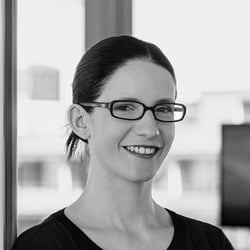After a brief roadblock caused by pandemic regulations, advanced medical education was pushed towards digitalisation, pulling all involved parties into the online world. Before that, few people were prepared for this development.
The corona pandemic has left its mark on all areas of our lives. For the most part, digitalisation was decisively advanced and implemented at great speed. Suddenly it was there - the digital transformation was not only necessary in pharmaceutical marketing, but also inevitable in medical education. Those who were not yet going digital were forced to do so. While in 2019 it was still said that doctors preferred analogue communication channels, after the pandemic outbreak in 2020 there were no more excuses. Not only did communication between doctors and pharmaceutical companies come to a standstill, but also medical training suffered from the imposed measures. Before the pandemic, continuing medical education mainly took place at congresses, lectures, workshops and working groups in the field, in print media or as self-study through specialist literature or teaching aids. In many places, physical events, often planned months or years in advance or even held annually, were postponed until further notice or even cancelled without a concrete date. The uncertainty continued: The change from physical congress to virtual training was necessary to keep catering to this sector.
But why is further medical training so important for doctors in the first place?
In both Switzerland and other European countries, there is a so-called medical training obligation for medical specialists. This obligation is important to ensure that doctors are and remain up to date with the latest medical developments. A certain number of continuing medical education points must be achieved. For the so-called CME (continuous medical education) points, all doctors have an annual target that must be achieved and verified. The minimum number of points and their time frame is defined differently depending on the country. In Switzerland, for example, this is defined and regulated by the Swiss Institute for Continuing and Further Education (SIWF) and by the individual specialist societies. In countries such as Germany and Austria, continuing education is also mandatory.
"Further training is a professional duty of every practicing physician. For the medical profession, training is a fundamental requirement, but is also required by the Medical Profession Act and, for FMH members, by the Code of Professional Conduct. It is also a precondition for certain tariff applications."
For pharmaceutical companies, medical education is essential to inform their target group about new findings, studies and pharmaceutical substances through a medical approach. Due to the lockdown, this exchange of information between the two parties suffered. Not only because of the imposed measures, but also because many professional societies reacted to it: provisionally, the conditions of the continuing education obligation were adapted to the circumstances, e.g. by awarding points on a flat-rate basis without any effort or by reducing the number of points to be accumulated. Nevertheless, there was a strong desire to find a long-term solution for further medical education. One thing was clear, a digital transition was needed: how can physical congresses be held in a new way? That which is already a reality in other industries was still somewhat uncharted territory in the medical sector. A new era of digital webinars was born. Thus, many topics that were planned during congresses, workshops, etc. could also be conveyed virtually.
The professional societies also had to follow suit and check and approve CME points for virtual events. Nevertheless, the virtual possibilities for continuing education were not yet fully covered. In many professional journals, there were pages of continuing education that could be solved or read. Since the print section was cut and self-study was made more difficult, e-learning was needed. just-medical! had been prepared for a long time: With the med-cases, we have been offering various e-learnings in nine disciplines for Switzerland, Germany, Austria and France since 2010. We have the professional expertise to facilitate the fusion of successful marketing, support in advanced medical training and scientifically and clinically sound information transmission to the target group. But it is not only in the pharmaceutical industry that we felt a sense of urgency. The interest in virtual training also increased massively among medical specialists.
Where we had around 11,800 visitors per year before the pandemic, the number exploded in 2020 and we even expect it to double to around 25,000 visitors in 2022. With our many years of experience and our elaborate concept, we were able to react immediately and are constantly expanding our offers. In 2021, we expanded our e-learning platforms to include another target group and were able to meet the needs of pharmacists in medical training. We are looking back at extremely positive responses to the e-learning courses at the entire DACH level.
Our formula for success
On the one hand, we create a high degree of interactivity with our e-learning, whereby the participants' anonymity is always guaranteed by the aggregated evaluations. On the other hand, e-learning as an online tool or website is detached from time and space. In addition, we guarantee medical balance and editorial independence as an independent institution. The science and clinical aspects are always the focus of attention. E-learning is basically structured in such a way that we work together with experts on a patient case from practice, whereby drug-specific key messages, new studies and guidelines are taken up. In a first step, the patient case is presented as a survey with four to six questions with multiple choice answers. In between, the patient history and its course are described. In this way, the specialists follow the patient's case and give their opinion anonymously. After the survey, summarised results are presented in the evaluation and elaborated with comments from the experts as well as references to studies and guidelines. There, the participants can also interactively view their answers to the survey. For the entire project, we take care of everything from the maintenance of the platforms to the medical writing and the design of the layout. In addition, we apply for CME accreditation with the respective professional society for your patient case. Thanks to our many years of experience and cooperation with professional associations, we have a near 100% success rate for applications. However, accreditation by the professional society is only achieved through polysponsoring, which we consistently fulfill with our presenting partners on our platforms.
We provide various opportunities for virtual, CME-certified medical education. With our many years of expertise in medical education, we deepen your interaction with your target doctors in a medical-scientific environment. Position yourself prominently among your target physicians as a supporting company for continuing medical education now!










